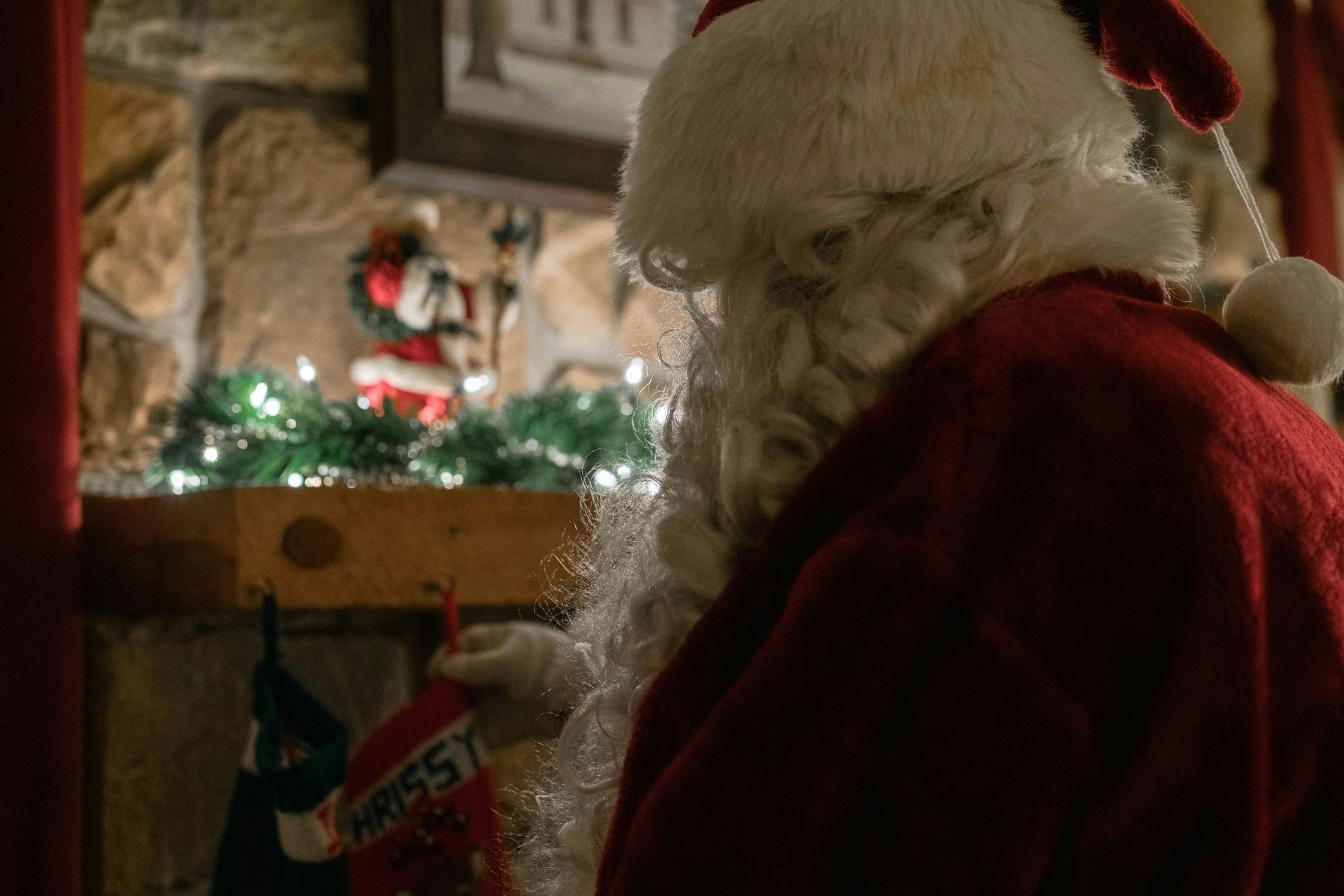Whether or not you believe in god, this is a time of wonder and love

“Christmas isn’t as exciting anymore… because I don’t believe in Santa,” my youngest daughter whispered to me recently. She was careful not to let her older sister, who still claims to believe in Santa, overhear. It was an innocent comment, but it made me a bit sad to hear that, for her, the magic of Christmas was dependent on that particular belief.
Ironically, my eldest daughter – who uncovered the truth about Santa two years ago – has now reverted to “believing” again. I’m puzzled by this. Maybe she thinks that if we know she doesn’t “believe” in Santa, she’ll get one less present this year (we’ve always given “mummy and daddy” presents as well as one from Santa). Or perhaps, unlike her sister, she’s decided to ignore the evidence of Santa’s non-existence to cling to one of the most magical ideas humans have ever invented.
My daughter’s back-and-forth between belief and reasoned non-belief reminded me of some acquaintances I met through an “ex-Muslim” network online. Once staunch atheists, they’ve since returned to Islam. While I haven’t asked these particular people why they’ve done this, I can’t help but hope they’ve found peace, whatever their reasons. I do, however, also hope they’ll hold on to one thing from their ex-Muslim days: the joy of celebrating Christmas in its full, radiant, secular glory.
I’m not trying to belittle religious belief by comparing it to belief in Santa. However, my conversations with other “reverts” to religion have led me to think that some experience a profound sense of loss upon concluding their religion might not be true. They often struggle to fill the void left by this realisation and seek to recapture a sense of meaning and wonder about life and existence – something a purely rational outlook can often strip away. In some cases, though, I suspect that reverting to religion serves a very different purpose: repairing relationships that may have been strained or broken by leaving the faith of one’s family and community. I also think it can help some people to regain a sense of identity and belonging which they may have found lacking in their atheism.
Growing up in an immigrant Muslim household in 1970s Elephant & Castle, south London, Christmas wasn’t something we officially marked. These days, nearly all the Muslims I grew up with celebrate it – sometimes with more enthusiasm and fanfare than for either of the Eid festivals. I can’t help but wonder how much of this shift is driven by the general commercialisation, and indeed secularisation, of Christmas, and how much by the fact that many British Muslims of my generation are making up for lost time, having experienced Christmas from the sidelines as children. We were given a tantalising taste through television and primary school festivities and many of us longed to join in the whole, joyful spectacle.
While we couldn’t have a traditional Christmas while living with my dad, my siblings and I made our own: we exchanged small gifts bought with our Saturday job earnings and snuggled together on my bed to watch Christmas specials on TV. Of course, we took it up a level once we moved out, delighting in our newfound freedom to “do Christmas properly.” I fondly remember the ever-changing rainbow glow of our optical fibre Christmas tree, which I faithfully erected every 1 December. The presents we stacked underneath it often spread halfway across our small living room floor.
When I moved in with my wife, whose childhood Christmases were more conventional, I failed to convince her to buy a similar tree for our new home. However, we agreed that our own, more realistic, plastic tree would go up on 1 December and that the children could decorate it however they wanted. It’s now a cherished family tradition.
Since then, Christmas has become more magical than ever for me. I’ve finally been able to experience what I missed out on as a child – by living it vicariously through my children. Watching their joy during the season has more than made up for my childhood deprivation. As the fabulous Gloria Estefan sings on a Christmas song that really deserves to be better-known, I get to see Christmas “through their eyes”. In doing so, I’ve found yet more evidence for my belief that this is a “holy” day that has transcended its religious origins to become something far more universal. For me, Christmas has always been about celebrating family and friends – about love, giving and togetherness. I hope both my daughters will come to understand that the true “magic” of Christmas doesn’t lie in Santa or any of its other associated myths but in embracing the very real, human values the season embodies.
Give the gift of journalism this Christmas! We’re offering gift subscriptions for just £19.99 – the perfect choice for curious minds! Sign up now using code XMAS24.

